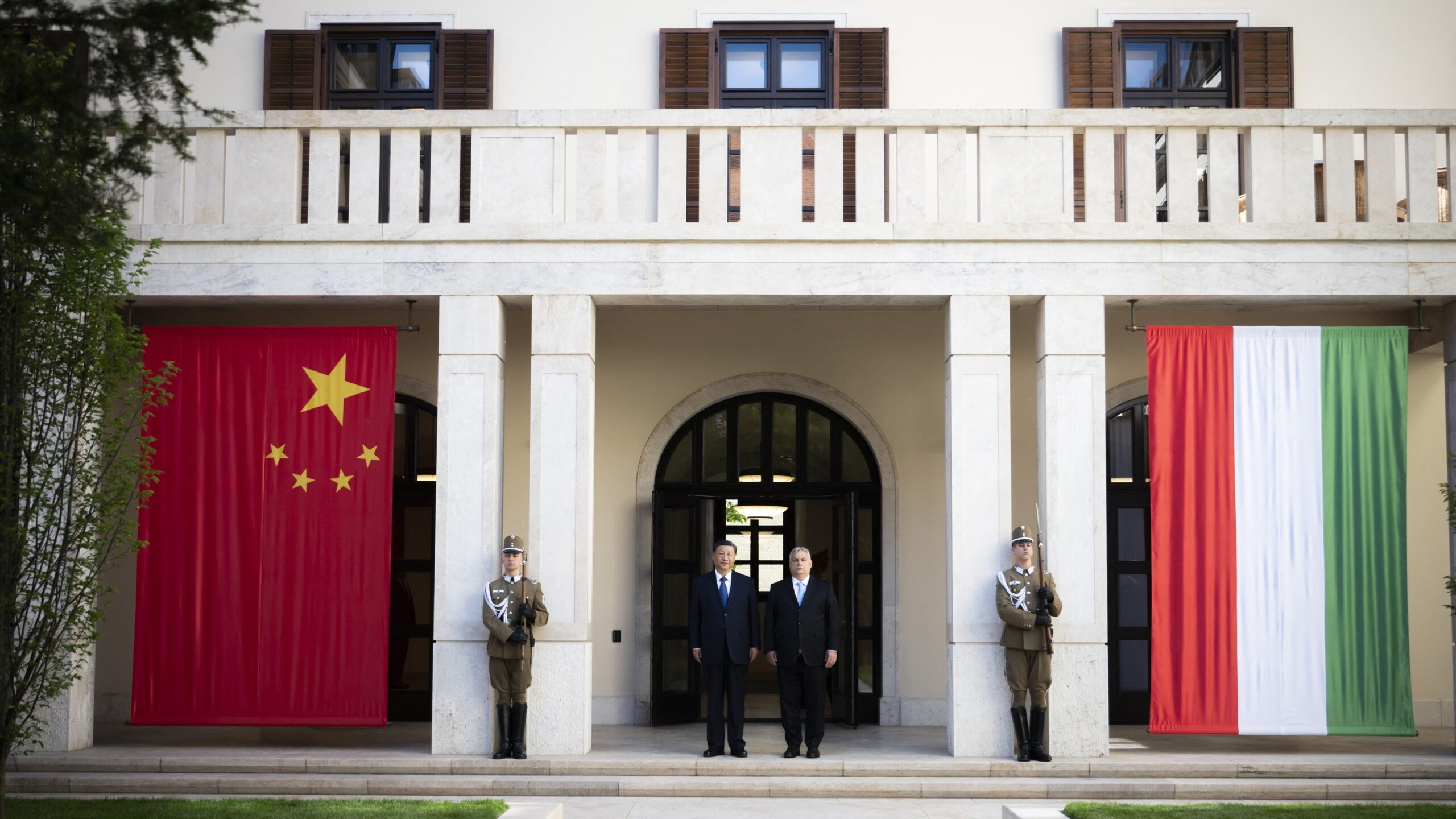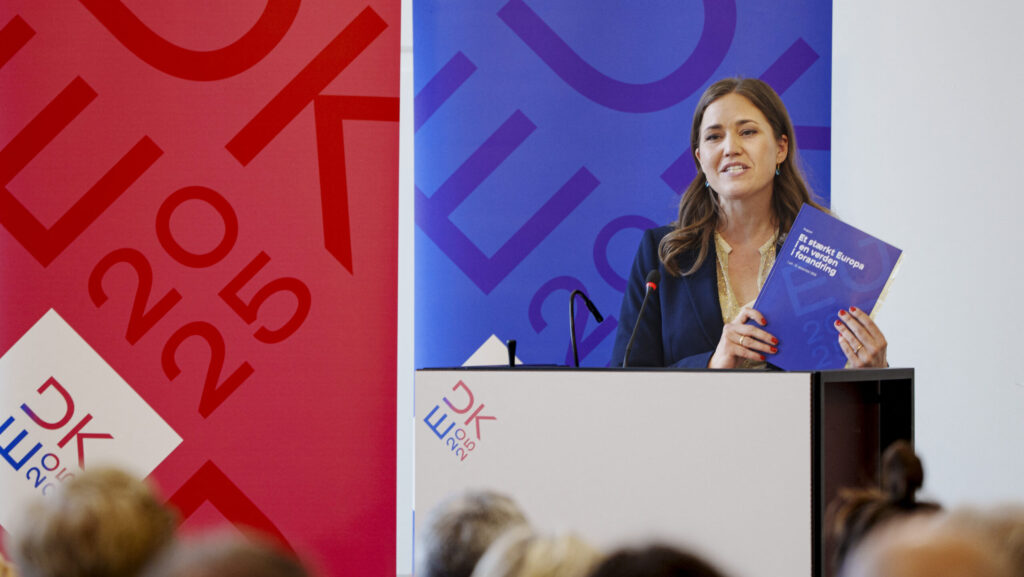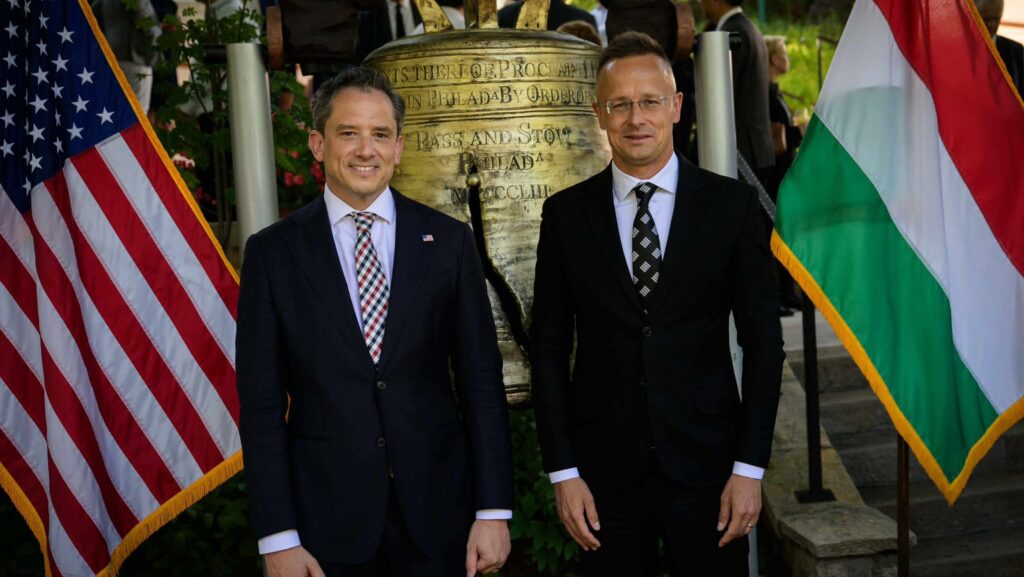Writing recently in the Wall Street Journal, an American named Meg Hansen, who falsely claimed to be a fellow at the Danube Institute in Budapest, excoriated the Orbán government for its opening to China.
It was a standard critique from an American neoconservative, who calls out U.S. right-wingers like me for backing Viktor Orbán. Alas, I would be dishonest if I said Hansen didn’t land some effective blows. It is not hard to understand why American conservatives would recoil at Hungary’s China strategy, given the nature of the Chinese regime. Yet it is also true that some Hungarian conservatives are concerned as well with their government’s rapport with the Chinese Communist Party.
But what Hansen, like many Americans, completely ignores is
how Western countries have left Hungary with little practical choice. Hungary’s outreach to China has not occurred in a vacuum.
One hardly needs to recount the ways both Brussels and Washington have bullied Budapest for many years. Orbán earned the contempt of Brussels and other European capitals by refusing to capitulate to 2015’s great migration into Europe by Islamic masses. More broadly, Orbán has consistently opposed the civilization-destroying madness that is European migration policy.
Writing this week in The European Conservative, Connor Tomlinson catalogs the cost of mass migration to his own country, Great Britain, both economically and socially, in terms of increased crime. The same story is true all across Europe —but not in Hungary, Poland, and other countries that have refused to go along with Europe’s madness. It is becoming impossible to deny that Viktor Orbán was right about migration all along.
Orbán has a different view of what a nation is than do his critical European peers. To them, a nation is more of a universalist proposition than a particular people. This is the American model, as well as the model that emerged out of the French Revolution. To be a member of the nation, you only have to pledge allegiance to its governing model.
This has worked fairly well for the United States, a new nation that has a long history of mass migration by diverse peoples (though always peoples of European cultural descent, until recent decades). It has not worked well at all for Britain and European countries, whose history, cultures, and traditions are far deeper than America’s, and who have understandably found it hard to assimilate those from radically different cultures.
American neoconservatives find it difficult to understand this, because they operate from right-liberal assumptions about human nature, as well as from their own experience with America’s successful assimilation of migrants. They look across the Atlantic and puzzle over why Europeans have so much trouble assimilating minorities. Many of them assume it can only be racism. Because American culture is relatively thin, and changes so dynamically, they figure it must be true everywhere. But it’s not.
As an American living in Hungary, I have been welcomed, but I am under no illusion that I will ever be a real Hungarian, even if I were to live here for the rest of my days. This does not offend me. It would be the same if I lived anywhere else in Europe. It’s not because people are unwelcoming, but because to be a member of the Hungarian nation—or the Slovenian nation, or the French nation, and so forth—is to be a part of the history and traditions of that nation.
That is, to be able to claim them, and to feel them, as one’s own. A Hungarian migrant to the United States finds it far easier to become an American than an American would to become Hungarian. It is not simply a matter of ‘blood and soil,’ as Americans are quick to claim. It becomes difficult to discuss these realities because liberals—even right-liberals, like American neocons—instantly default to Nazi racial theories, as if the only alternative to liberal universalism was race-fascism.
Perhaps it’s because Orbán leads a small people who have had to fight for their existence as a people for a millennium, but he knows in his bones that no nation is guaranteed a future. There will always be a France, in that the borders of the historical French nation will exist, and its government will always be in Paris. Perhaps too it will be governed by the propositions of the liberal democratic state.
But that does not mean that the historical people of France will be the ones that populate that geographical territory. If the people who make up a majority of the citizens of France aren’t descended from the peoples who have lived in those lands for thousands of years, is it still France? This is the question behind Renaud Camus’s idea of the Great Replacement—a policy that has been enthusiastically embraced and promoted by Europe’s ruling class for at least two generations now.
When the European Union makes accepting large numbers of non-European migrants a condition for continued membership in the union, what it is really asking is that
member states agree to their own ultimate demise as a distinct historical people. Orbán rejects this soundly.
The justification for his stance can be seen every day across Europe.
Similarly, Orbán has faced condemnation from European leaders for his government’s policies on LGBT matters, especially Hungary’s 2021 law banning propagandizing children for gender ideology. Mark Rutte, at the time the Dutch prime minister, said that Hungary had no place in the European Union because of its law.
Orbán believes that strong traditional families are the basis for a strong nation. Look at the public-policy chaos and high rates of mental illness that have emerged across the West in countries that have embraced gender ideology. You would have to be a lunatic or an ideologue to believe that denying biology, and denying the source code of civilization from time out of mind, would allow nations to be stronger. But that is exactly what the contemporary West does. The American ambassador to Hungary never misses an opportunity to slam Hungary for its policies.
Nor does he fail to criticize Hungary for its opposition to NATO’s proxy war on Russia. The Hungarian prime minister believes it is not in Europe’s economic interest to support this war, and he makes arguments defending his position. Why should Europe impoverish itself to fight a war that is primarily in America’s interest? Orbán might be wrong about that—I don’t think he is, but we could both be wrong—but his Western critics have satisfied themselves by accusing him of being ‘Putin’s lapdog.’ The message is that if you want to be part of the West, you must not stand up for what you sincerely believe is in your nation’s, and Europe’s, interest, but instead do what Washington says.
So, to China. Three years ago, in a meeting of Catholic legislators, I sat with three Ugandan parliamentarians who explained why China is making so much progress in Africa, at the expense of Europe and the United States. They talked about LGBT laws, and population control. U.S. and European governments and NGOs typically make development aid to Africa contingent on accepting Western sexual and reproductive standards—standards that run directly counter to African cultural traditions.
The Chinese, by contrast, don’t make such demands on African nations. They simply want them to be allies. These Ugandan women were under no illusions that China is acting out of charity. They were simply making the point that
whatever the costs of China’s friendship, they don’t include having to surrender values that local people believe to be important to them.
This is how I see Hungary’s dance with China. Meg Hansen is not entirely wrong about the risks here. But what she fails to see is that the intransigence and bullying of Western leadership forces Hungary to make an unpleasant choice. Does Hungary accept terms imposed by the U.S. and the EU, even when the Hungarian government believes them to be deeply damaging to Hungary, and its continuation as a people? Or does it take the risk of reaching out to China, which it believes will leave Hungary alone to be Hungarian?
Moreover, if you were the leader of Hungary, and you saw your primary task to ensure the prosperity and continuation of the Magyar nation, how much confidence would you have that being an unproblematic part of the West is the right answer? Hungarians know that when Grand Prince Géza, the father of István, the first Hungarian king, chose to have his son baptized as a Latin Catholic (as opposed to one of the Orthodox churches of the Eastern Roman empire), he was deciding to orient the kingdom to the West, instead of with its Byzantine Christian rivals. Hungary has been an important part of Western civilization for a thousand years.
Alas, Western Christendom is no more, and the liberal democratic successor states are in crisis. When even the Roman pontiff advocates more mass migration of Islamic peoples into Europe, what is the leader of Hungary to think? At a recent defense conference in Sweden, a Spanish Catholic intellectual made the grim point that most of the countries that make up NATO are in the process of falling apart as nations. They are not reproducing themselves, and they are continuing to accept unsustainable numbers of migrants from alien civilizations. Can NATO member states really expect European nations to fight a war for their own survival, when they won’t fight for themselves domestically in peacetime?
Put simply, whereas Grand Prince Géza, father of St. Stephen the King, could judge Hungary’s preservation as a nation as better served by allying with the West in his day, a thousand years later, István’s successor as leader of the Hungarians has no such assurance. So, what is he to do?
To be clear, I don’t intend this as a defense of Hungary’s China policy. Nor do I intend to critique it. I am simply trying to shed cultural light on what Viktor Orbán might be thinking. In his Tusványos address this past summer, Orbán said that ‘the biggest problem the world faces today is the weakness and disintegration of the West.’ He also said that Europe has cast its lost with a ‘post-national’ vision, in which Hungary would have to agree to its own effective dissolution as a distinct people to remain part of the West. This also, said Orbán, means surrendering Christian values.
It need not have been like this! It need not be like this. But this is the ultimatum the West has effectively given not only to Hungary, but to all of its member states.
Orbán appears to see the West as a sinking ship, and is trying to find a lifeboat for his people. The rise of Asia is the geopolitical story of the century.
It seems to me that Orbán sees his people as having a greater chance of surviving the disintegration of the West by forming ties to China.
He might be proven wrong by history. But make no mistake: the dilemma facing Viktor Orbán is a lot like that facing Grand Prince Géza: How to strengthen the position of the small Hungarian nation amid the struggle of powerful states and empires? Géza’s geopolitical decision to baptism his son as a Latin Christian set the course of Hungarian history for a millennium. The stakes may well be as high for Orbán today.
The frustrating thing is that Hungary would still make a tremendous ally to the West. In fact, the only way the West has a real chance of saving itself is to follow Hungary’s visionary lead of national conservatism and Christian cultural renewal. Alas, to steal a line from Scripture, a prophet is not accepted in his own civilization.








